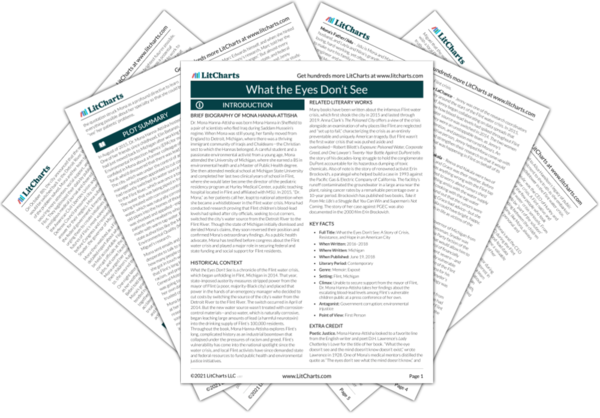Paul Shekwana Quotes in What the Eyes Don’t See
Urban poverty is less lethal now, but in some respects, nothing has really changed. The environments of the cities we live in—their dirt and air, their violence and hopelessness and stress, their water—can still predict how long a life we will have.
I was drawing on something deep inside me. Maybe it was the letters my mom received from Haji in Baghdad, or the pictures I’d seen of the gassing of the Kurdish babies. Maybe it was the tenacity and optimism of Mama Evelyn or the strength and integrity of my dissident parents. Maybe it was the inspiration of my heroes, fighters like Alice Hamilton. […] Or maybe there was even something in my DNA, an ancestral inheritance of persistence and rebellion and activism, handed down to me from the generations of prolific scribes who had hoped to keep Nestorian traditions alive, or from Nuri […] with his brave rebellion, or from Paul Shekwana with his passion for public health.

Paul Shekwana Quotes in What the Eyes Don’t See
Urban poverty is less lethal now, but in some respects, nothing has really changed. The environments of the cities we live in—their dirt and air, their violence and hopelessness and stress, their water—can still predict how long a life we will have.
I was drawing on something deep inside me. Maybe it was the letters my mom received from Haji in Baghdad, or the pictures I’d seen of the gassing of the Kurdish babies. Maybe it was the tenacity and optimism of Mama Evelyn or the strength and integrity of my dissident parents. Maybe it was the inspiration of my heroes, fighters like Alice Hamilton. […] Or maybe there was even something in my DNA, an ancestral inheritance of persistence and rebellion and activism, handed down to me from the generations of prolific scribes who had hoped to keep Nestorian traditions alive, or from Nuri […] with his brave rebellion, or from Paul Shekwana with his passion for public health.











